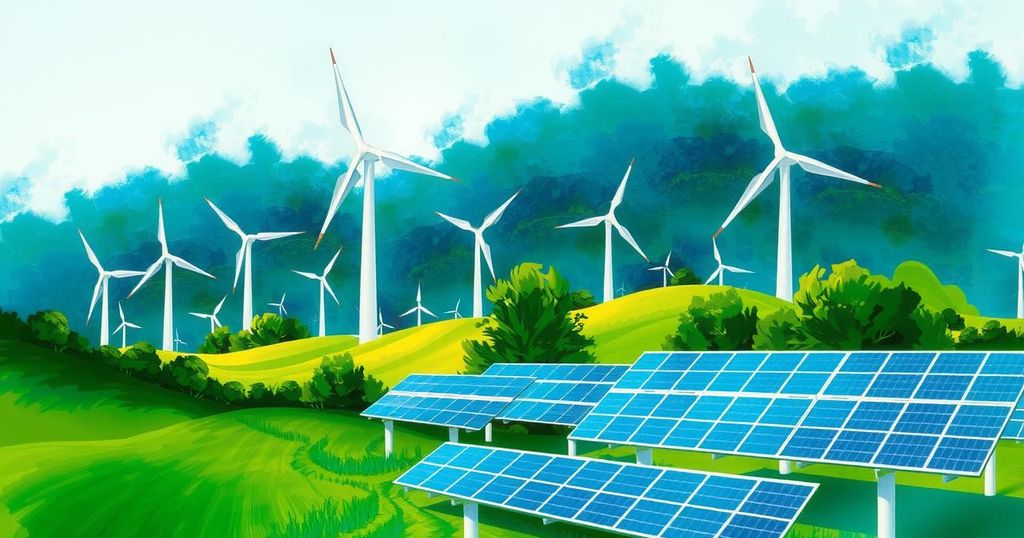AI
ARTIFICIAL INTELLIGENCE, ASIA, BEIJING INITIATIVE ON DIGITAL SCIENCE AND TECHNOLOGY FOR SUSTAINABLE DEVELOPMENT, CARBON PEAK AND CARBON NEUTRALITY SCIENCE AND TECHNOLOGY FORUM, CHINA, CHINESE ACADEMY OF ENGINEERING, CHINESE ACADEMY OF SCIENCES, DALIAN INSTITUTE OF CHEMICAL PHYSICS, DATA CENTERS, DECADE OF SCIENCES FOR SUSTAINABLE DEVELOPMENT, DIGITAL TRANSFORMATION, DING, DING CHIBIAO, FOR SUSTAINABLE DEVELOPMENT, GUO HUADONG, INNOVATION, INTERNATIONAL COOPERATION, INTERNATIONAL FORUM ON SCIENCES FOR SUSTAINABLE DEVELOPMENT —, INTERNATIONAL RESEARCH CENTER OF BIG DATA FOR, INTERNATIONAL RESEARCH CENTER OF BIG DATA FOR SUSTAINABLE DEVELOPMENT GOALS, LIU ZHONGMIN, MEXICO, NATIONS, NORTH AMERICA, SCIENCE_TECHNOLOGY, UNESCO, UNITED NATIONS, YE, YE MAO
Rajesh Choudhury
0 Comments
Artificial Intelligence: A Catalyst for Green Innovation and Sustainability
The 2025 Zhongguancun Forum highlighted AI’s crucial role in promoting green industrial advancements and global sustainability. Experts, including Ding Chibiao and Ye Mao, discussed AI’s impact on energy systems and chemical engineering processes, while Guo Huadong introduced the Beijing Initiative for sustainable development utilizing digital technologies. Significant strides demonstrate how AI is reshaping industries to meet carbon reduction goals.
At the 2025 Zhongguancun Forum, experts discussed how artificial intelligence (AI) and digital technologies are pivotal in enhancing green industrial upgrades and supporting global sustainable development. Ding Chibiao from the Chinese Academy of Sciences emphasized that AI is transforming energy systems to help achieve China’s ambitious dual carbon goals of peaking emissions before 2030 and achieving carbon neutrality by 2060.
Ding stated, “AI is a cornerstone of innovation for future energy structures, driving green transitions.” Notably, AI implementation has already bolstered efficiency in high-carbon sectors like chemicals, aligning with a strategic action plan announced in 2022. Ding advocated for stronger interdisciplinary collaborations to push forward AI-enabled low-carbon energy innovations.
Ye Mao, a researcher leading the intelligent chemical engineering team at the Dalian Institute of Chemical Physics, shared insights about AI’s impact on chemical engineering. Since 2016, Liu Zhongmin’s team has introduced AI technologies, recently launching Chem-ELLM, an advanced model for autonomous chemical process design, which improved to Chem-ELLM 2.0 with enhanced capabilities.
Ye explained, “The new version significantly improves capabilities in catalysis, safety and foundational chemistry, broadening industrial applicability.” Over 50 chemical companies have engaged with the model, seeing a gradual increase in adoption. Ye acknowledged that traditional engineering practices and AI collaborations will coexist through the transition towards a smarter ecosystem.
At the International Forum on Sciences for Sustainable Development, experts explored the role of digital technology in achieving the UN’s 2030 Agenda for Sustainable Development. Guo Huadong revealed the Beijing Initiative, aiming to leverage AI and big data against climate change, biodiversity crises, and poverty.
He remarked, “Digital tools are key to optimizing energy use, cutting emissions and improving resource management.” The initiative calls for global platforms to share digital resources and enhance sustainable policies. Guo highlighted contributions like SDGSAT-1, the world’s premier satellite aimed at the 2030 agenda, which has provided over 420,000 datasets to numerous nations since its 2021 launch, facilitating urban studies and disaster response.
The discussions at the Zhongguancun Forum underscore the transformative power of artificial intelligence in fostering green technologies and sustainable practices. With initiatives like Chem-ELLM and the Beijing Initiative championing the cause of environmental stewardship, it is clear that technology will play a central role in achieving ambitious climate goals and enhancing global sustainable development. As these tools progress, traditional engineering must merge with AI to create a cohesive, intelligent landscape for future advancements.
Original Source: www.chinadaily.com.cn




Post Comment